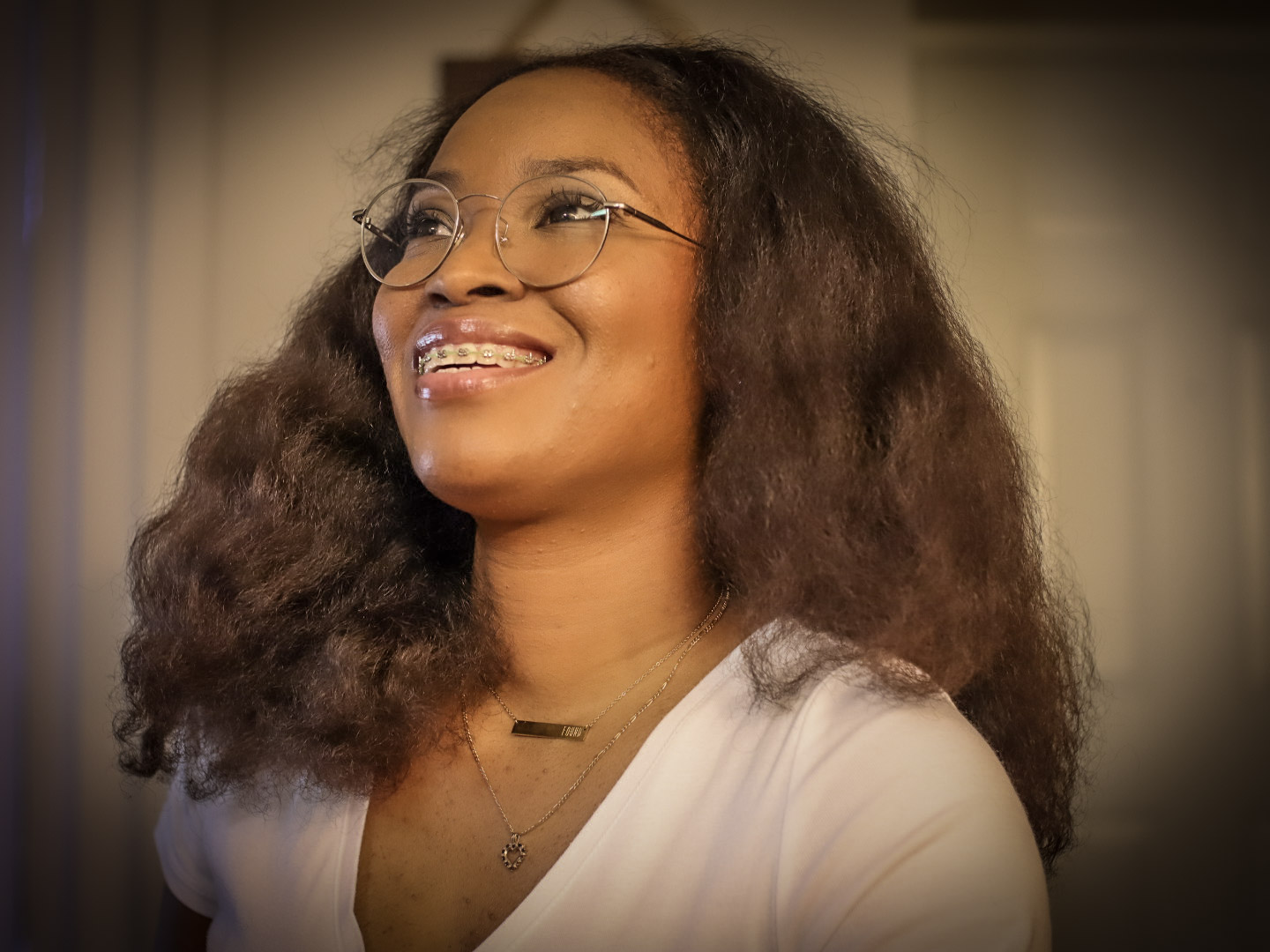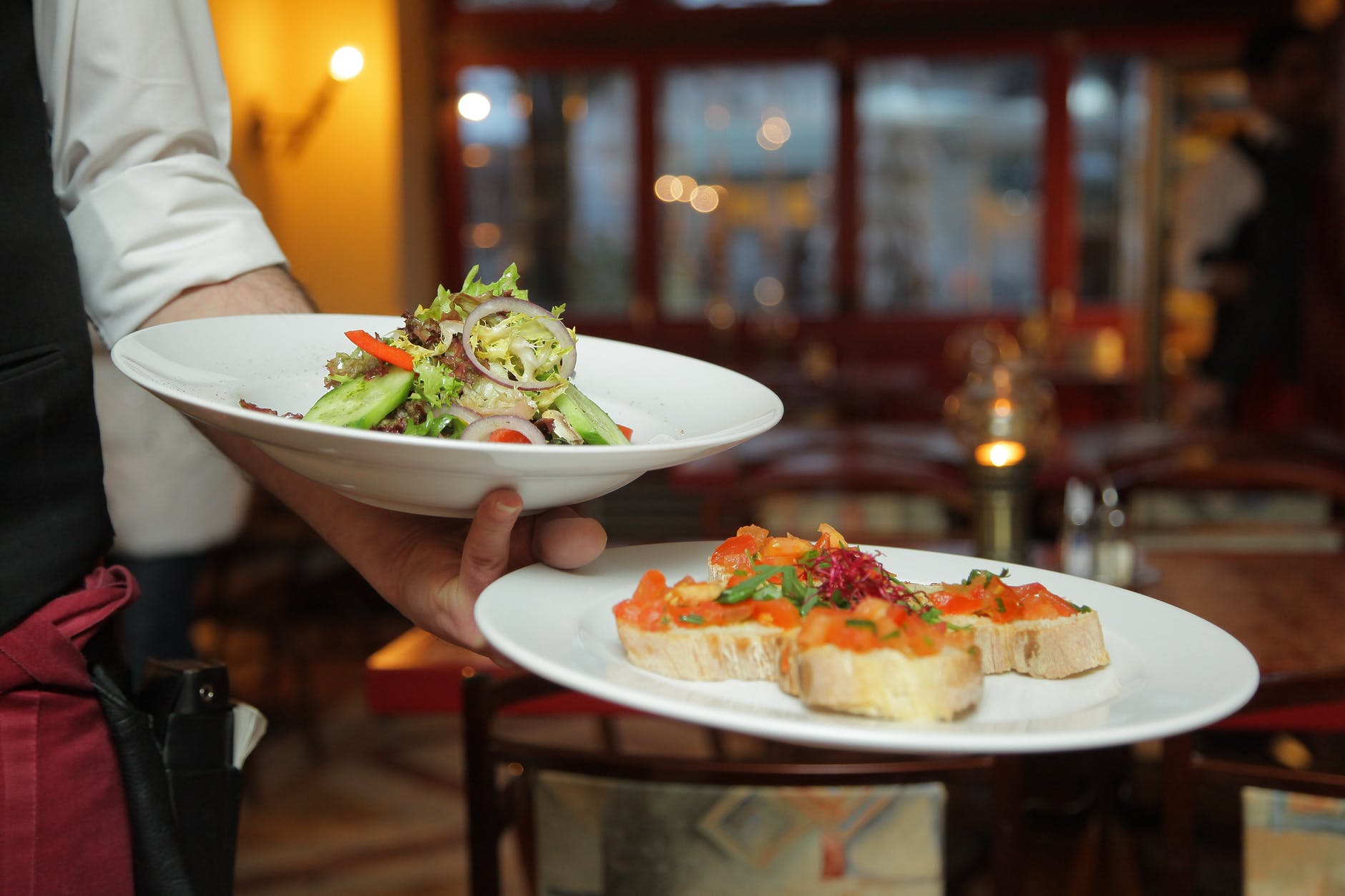 By Kaydene Green
By Kaydene Green
Content – happy enough with what one has or is; not desiring something more or different; satisfied
Have you ever experienced perfect peace with what you had until the moment you found out there was a better version out there?
In my closet are over 29 pairs of pants, more than 80 shirts and blouses (combined), about 10 dresses, and roughly 38 pairs of shoes. At this point you may be thinking “#blessed”, but the irony of these numbers is that whenever I have an event to attend, I almost always experience a meltdown from having ‘nothing‘ to wear. This, my friends, does not include the clothes in my dresser nor the ones in the dirty laundry basket.
Please do not mistake this as bragging. That conclusion could not be any further from the truth. I only just came to terms with this statistic when I made a conscious decision to count my closet’s inventory while working on this blog to prove to myself that I may have a problem on my hands. I’m not gonna lie, the numbers surprised me.
I was very tempted to stop counting midway through my collection. How can anyone have this many clothing options and still have a hard time finding something to wear at any given time? Clearly my taste in my own fashion selections was changing faster than the seasons in the year. To make things worse, half the clothes I bought I ended up not even liking.

This is discontentment.
I could go on and on about my expertise in dissatisfaction and tell you about the other “stuff” I’ve accumulated; from hair care products to stationaries to food pantry items – because I always need to be ready for food shortage for some reason – and I dare not mention the many unread books that have only been collecting dust on the bookshelf.
Some of these excess items have possibly been expired for months now but with all the other unused stuff in the way, who would be able to keep up with these important details?
“I’ll get this for later“, is something I’d tell myself ALL the time because I’ve become so good at dissatisfaction that I just know I will be needing something different not long after that initial purchase. Don’t get me wrong, some of the things I’ve gotten when I didn’t need them did come in handy – eventually – but many never did.
“So why did you buy so many clothes and things that you ended up not using Kaydene?”
Well I thought you’d never ask.
Short answer is, shortly after I made a purchase, I either realized quickly that the item(s) do not bring me the maximum satisfaction I expected or I found out that there is a newer version out and so help me God, I just had to have it. But then I thought to myself, why would I have made a mediocre purchase decision to begin with? Are my impulsive purchases and inability to say no to something I do not need or to keep up with the latest trends lending a hand in my world of discontentment?
We live in such a consumerist culture where minimalism is NOT encouraged. This is possibly a very new term to you. It’s the practice of living on and with the bare minimum. It’s having only the things you need and nothing extra. But silly me, why would this be encouraged?
I think I can speak for many of us when I say we love to have extra because having options is great. Product sales dictate the value of a company which means we continue to consume in excess and half the time we are only left with heaps of things that we never get to use. We are left to either hoard them, sell them or donate them and if we’re going to be honest, most times they end up in the garbage.
This mentality has permeated into more personal matters like becoming discontented with who I am or with the people in my life, or with my income, or how course my edges are without edge control, or how some guy’s eye lashes are way longer and thicker and fuller than mine and before you know it, the result is a long list of insecurities because I’ve somehow deducted that I do not measure up to someone else’s version of “better” or “best”.
What human has the authority to dictate what a perfect human being is suppose to look like anyway? We’ll leave that discussion for another time.
President Theodore Roosevelt was certainly onto something when he said, “comparison is the thief of joy”. I started to see how the comparison mindset and all it’s discontenting by-products was going to lead me down a slippery slope of eternal misery. So I decided it was time to unsubscribe from comparison and to stop looking at the empty half of the glass.

My ‘aha’ moment was when I got tired of spending, so I decided to become contented with exercising contentment
Settling For Less
For many people, contentment is unattainable. To them, it is the equivalent of settling for less. Why accept and older version of anything when you can have the new upgraded model? Why settle for this low wage career when you can go back to school and give yourself a chance to earn more?
Is it contradictory to say I live a contented life while pursuing a higher education in hopes of a higher wage or a new more fulfilling and purposeful career?
Have you ever seen the movie “The Pursuit of Happiness” starring Will and Jaden Smith? As you may (or may not) know, it is based on a true story and is the epitome of human resilience and how pursuing a better life propelled one man and his son into a future of higher purpose and abundance. Had he settled for his current situation, He’d probably not become the success story and encouragement he is today.
I don’t know that I could have been contented with living like a stray animal myself, but even in the rut, it could be argued that there was some bits of contentment.
I thought long and hard about how to be contented while pursuing more. Based on the definition given, it appears that it is impossible to be contented while aspiring for more. I could not disagree more. I’m convinced it comes down to the question of why?.
So I asked myself, what is my motive for wanting more? This is not an easy one to answer because there are so many little moving parts that would determine why we do what we do. From my experience, settling for less and thinking that there is nothing better in-store or that I have to have it now, has led to more of my discontentment than not settling ever did. The right approach to contentment, I’ve deducted, is hoping and actually waiting for the best that our creator has for us, while embracing and celebrating in ALL the things (and people) we do have now.
I am an advocate for continued growth in all areas of life within the reason of becoming a better version of myself and not with the intention of impressing others and I do feel as though the moment we stop learning is the moment we stop growing. If my intention is to keep up with the accomplishments of others, I’m as good as living with discontentment for the rest of my life.
A Story of Discontentment

Photo by EKATERINA BOLOVTSOVA on Pexels.com
My friend E.D. was beaming with excitement when she found out about her acceptance into the law program from one of the schools she had applied to a few months ago. Her radiant aura and immense sense of happiness had quickly engulf my own reality and I soon found myself thrilled all because of how much she was.
I know a thing or two about breathing a sigh of relief with getting an acceptance letter and feeling like life was finally starting to head in the direction I long hope it would.
She’d been anxious for weeks, possibly months, about her applications and so I felt genuine happiness for her when she shared the exciting news with me. Immediately I became eager to plan a celebration dinner. It was a great day in my book and I would think in hers as well. She finally realized that her potential was not going unnoticed.
By the next day, E.D. was not nearly as thrilled as she was the day before. She told me that she submitted a new application to a different school. I was a bit confused by this, so I asked her what had happened to the prior acceptance?
She brought to my attention that she had spent some time the prior evening, doing detailed research on the accepting school, (almost like going to WebMD to self diagnose), and realized based on the reviews that this may not be the best option for her.
While I can absolutely relate to this kind of discontentment, I was still amazed at how her excitement withered within a few hours all because the reviews were quite disapproving. The interesting part was that she had moved from being contented with getting no acceptance at all, to becoming obsessed with wanting to have a better option of school to attend. When I asked her why was she not contented anymore, E.D. said that for the money she was about to spend in tuition, she needed to make her journey well worth it.
I get it, contentment can come with a price tag and law school is a major investment.
Learning Contentment the Hard Way – My Uncle’s Story

Photo by Pixabay on Pexels.com
If there is anyone I know who lives and breaths contentment, it is my uncle.
He had just signed off from duty after many months at sea working as a chef on one of the largest cruise ships known to many. What was to be only a few months off from work turned into almost a few years. He was neither financially nor mentally prepared for this extended amount of time from work.
The hospitality industry had taken a hard hit during the covid-19 pandemic and there was nothing he could have done in his power to adjust that reality. It was such a major setback and something he wished he had seen coming. He shared many struggles he faced physically, mentally and spiritually, day and night. It was a tough time. His livelihood was swept from under his feet.
Many of the ill feelings he felt went unnoticed by many who had interacted with him because of how he handled the situation, with much contentment knowing that there are some things that are just out of his control.
When I asked him how could he have possibly practiced contentment in such a tough season, he expressed that for him it was a spiritual process. He could not have gone through what he did on his own strength. He believed it was a breaking process for him to teach him many important life lessons as well as to put all his trust in God, the only one who had seen this coming and had already worked out the provisions for him and his family.
My uncle said that he was reminded of the story of Job (as I had mentioned a few blog posts ago), and how when we are stripped of everything, we are faced with the inevitable decision of either choosing to be miserable or to practice contentment. What I also admired about his story is that his family, (wife and daughter), are faithful and loyal through the entire process. They all learned, alongside him, how to be contented in a season of lack. While they wished things had played out differently, they found comfort in trusting that God would never turn His back on their distress.
From E.D.’s and my uncle’s story and even that of my own, I realized that contentment is best achieved through intentionality and or through the harsh reality of the inability to acquire that which is out of one’s control.
So I’ve deducted there are two types of contentment:
- Inevitable contentment – the one where you have no other choice but to satisfy with what you have and where you are in life because you do not have the means to acquire more. It is also looking in the mirror and acknowledging that you had no control over your genetic make up and you are perfect just the way you are.
- Practiced/Intentional contentment – the one where you realize that you can no longer keep up with the Jones‘ or keeping up with them is only going to put you in a financial rut and knowing that what you have is good enough until you can responsibly, and within good reason, acquire more.

Photo by Julia Avamotive on Pexels.com
How to Practice Contentment
“Contentment is not the fulfillment of what you want, but the realization of how much you already have”
– Anaymous
There are two practical ways you can start practicing contentment:
- Do not compare. If what you have works and serves you well, it is all that you need. My cellphone may be 3 years old and my friend may have gotten the latest and greatest version, but mine still works and that is enough reason for me to not replace it. Until it stops working, I will remain contented with it.
- Be grateful for what you have in this very moment and season. An attitude of gratitude can go much further than we realize.
I know, easier said than done. Contentment to me is intentional and I’ve found it will take much effort on my part.
Advice From Rachel Cruze
While listening to chapter 9 of Rachel Cruze’s audio book, “Know Yourself Know Your Money“, I received a few guidelines on how to really practice contentment. Here’s what she had to say:
“Contentment is a process that changes your motivation for spending money. How? By changing what you value. Instead of valuing the acquisition of more stuff, you value other things more. It starts with gratitude, which develops into humility and over time grows into contentment. Contentment is the opposite of spending money because of other people. It’s about being satisfied with your life right where God has you versus feeling like you have to keep up. It’s about having peace in your heart for the season of life you are in and knowing your life is meant for something meaningful. Instead of chasing after the next new shiny thing, contentment changes your heart to be satisfied with what you already have.“
“Start with an attitude of gratitude – start your day by writing down (or even thinking about) 3 things you are grateful for. Not just the big things but the small things as well like writing with your favorite pen or drinking your favorite cup of coffee.”
“Being contented does not mean you are aimless, a doormat or lazy.“
“Being content has more to do with your “why”. Living life on your terms not with what you have. You can be content with a little and you could be contented with alot.” – Rachel Cruze
Biblical Perspective on Contentment
Ecclesiastes 6:9
1 Timothy 6:6-7

Photo by Brett Sayles on Pexels.com
Practicing Contentment during the Holiday Season
The Holidays is one of the best but possibly the hardest times to practice contentment. If you received nothing for Christmas would you still be happy? Could you still have joy if you were overlooked? The holidays can be a very triggering time of year for many as their lacks become emphasized.
For Christians, the real gift of the season was salvation embodied in human form and a new way of living life. No longer do we have to be enslaved to our past mistakes and for many, this is enough of a gift. No monetary or material possessions will ever be able to measure up.
Joyce Meyer puts it this way, “enjoy where you are on your way to where you are going“. Joyce, I could not agree more. I definitely won’t sit and do life without aiming for something greater, or better or even God’s best for me, but if my idea of what this looks like never happens, then let it be known that I will be contented knowing that if it was meant to happen any other way, it would have.
Have you had to practice contentment? How was it a struggle for you? How has your life been different since you’ve learned contentment? Share your thoughts in the comment section below. Don’t forget to subscribe for new content as soon as they are released. Until next time, have a blessed week and a very Merry Christmas.
More Resource on Contentment
Another perspective on contentment:
Having trouble viewing this video? Watch it here

Last Updated: December 29, 2021
